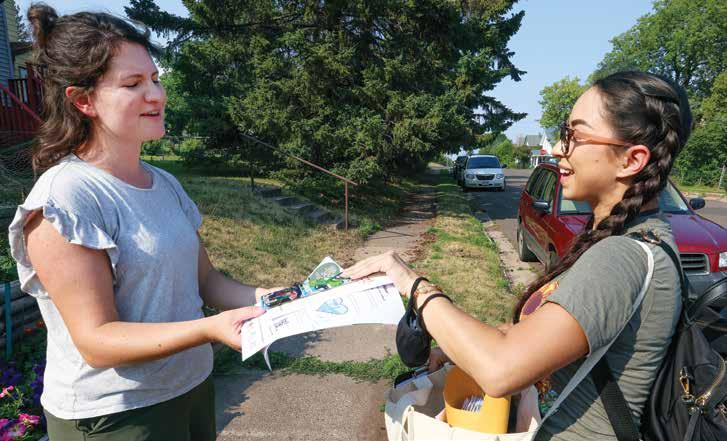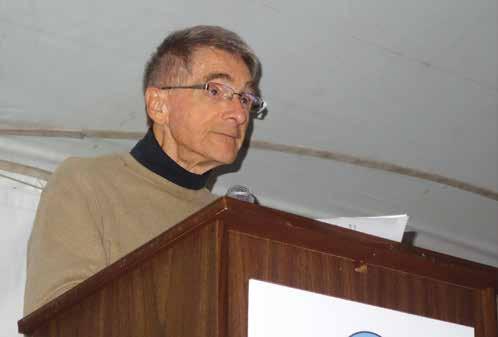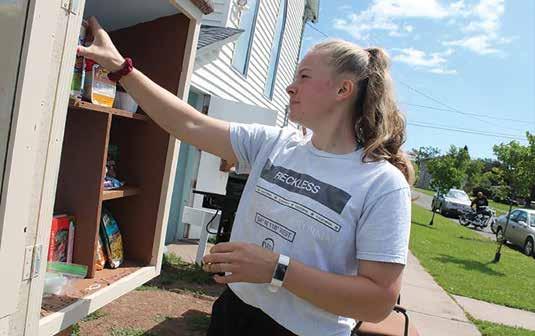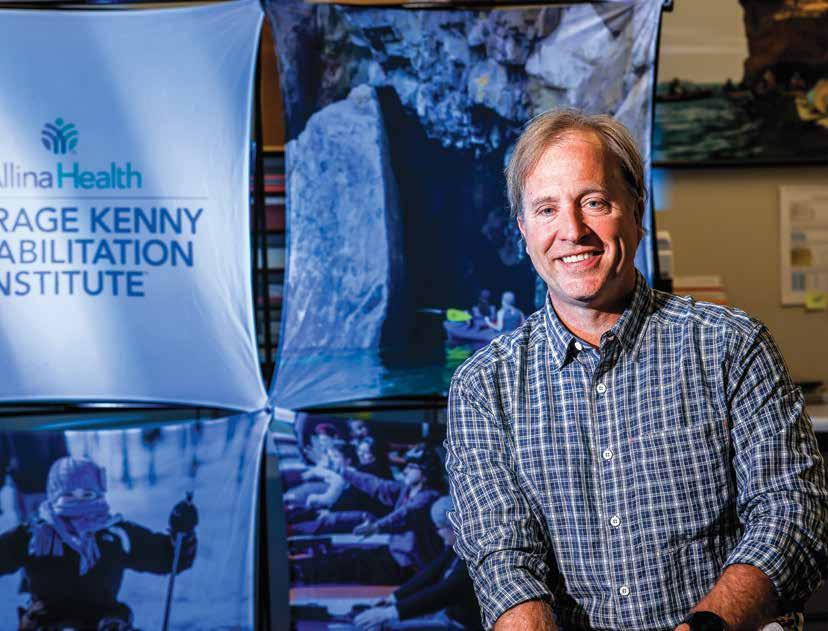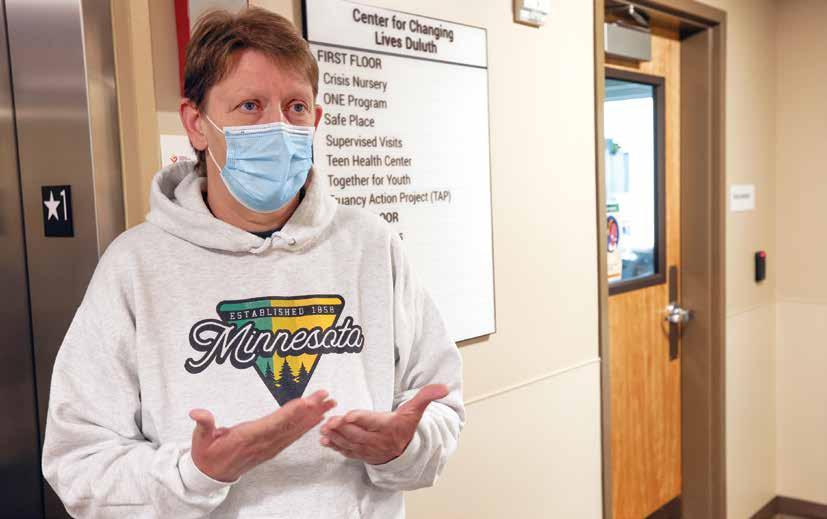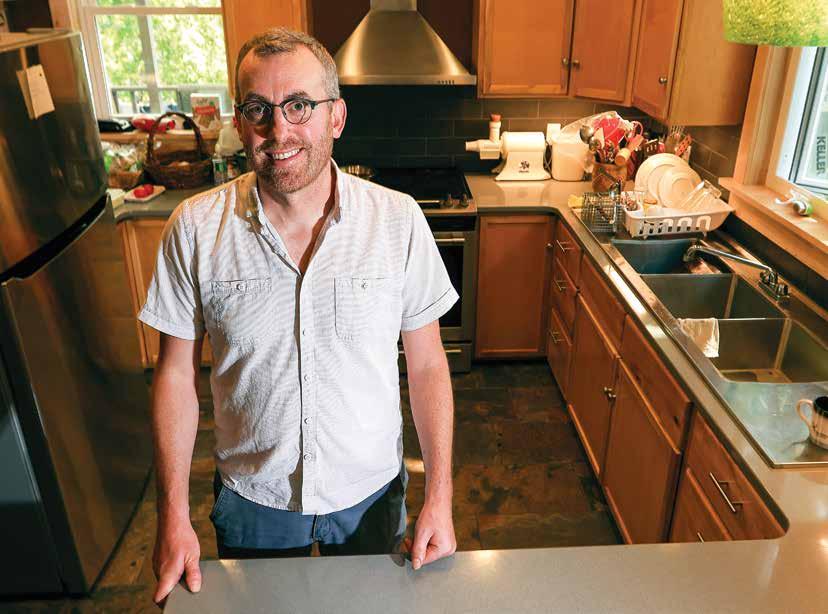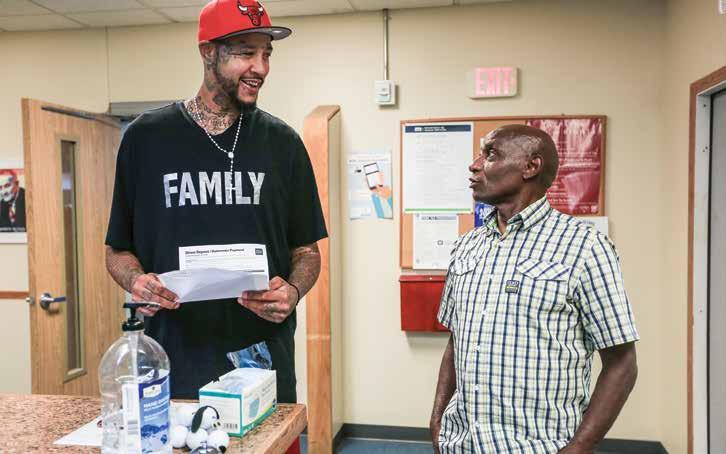
3 minute read
Men as Peacemakers charges toward liberation
By Andee Erickson
Duluth News Tribune
The youth in Duluth’s public schools who self-select to join Men as Peacemaker’s youth restorative program forgo their recess time to explore healthy masculinity with Serrano Robinson.
“The kids bring each other,” Robinson said. “You can tell how much it means to them. They’ll come in, literally, with five extra people the next day and I’m like, ‘Hold on. Let me write down your names.’ They just love it. They love being supported. They love being in a group where they can be them and they can grow.”
All the programs, for youth up to elders, that run through Men as Peacemakers — a Duluth nonprofit aimed toward liberation and preventing violence to women and children — are filtered through the belief that everyone is connected, and the programs are born from needs identified by the community.
In the youth groups, Robinson facilitates discussions and activities rooted in learning life-building skills such as conflict-resolution, emotional awareness in themselves and others, leadership, self-worth and accountability.
Robinson believes in young people and knows first hand what it’s like to grow up without a support system.
“Youth need support in general,” he said. “It’s helping the youth grow into their leadership, grow into who they are, while also challenging the toxic masculinity that comes from the community. When you think about children, most of what they talk about is what they learn. If a 10-year-old can tell you right in your face that he has heard that Black people are not important, then we have to access that and we have to talk about that.”
There’s no “life class” in schools, Robinson said. No classes that coach kids through their worries. That’s why his favorite part of the program is youthled conversations. If the kids have something on their mind they want to talk about, the program drops its plan for the day to discuss that.
The program serves four schools: Laura MacArthur Elementary School, Piedmont Elementary School and Lincoln Park Middle School — all during lunch — and Myers-Wilkins Elementary School after school. Activity-based programming is also offered in the summer.
While Robinson makes ample space for kids to have fun, he also sets a stern standard of discipline and respect.
“I believe discipline falls under the lines of love, because we can’t just allow each other to do anything to each other,” he said. “I think they see we’re providing that authentic love with ‘I actually care about you and I’m not going to allow you to go down.’”
The program can leave a lasting impression on kids, Sarah Curtiss, co-executive director of the nonprofit, said, because they get to know adults in the community, beyond their family and teachers, who love and care about them.

“They’re talking about things most of us didn’t talk about until we were in college, or beyond that,” Curtiss said. “Serrano is such a good example and great representation of a singular program here at MAP.”
The nonprofit is set on creating a world of liberation and joy inside the organization that Curtiss is confident humanity will experience during her lifetime.
She shared a vision she has of herself long after her work in the community is done. She’s sitting in a rocking chair among great-grandbabies, probably wearing the same green streaks in her hair.
In the vision, Curtiss said: “They’re looking at me going, ‘So, Grandma, what did you do for work again? People used to hurt each other like that, Grandma?’ I really honestly believe there’s going to be a generation of children who are not going to be impacted by violence in the way I was and my mother was and my grandmother was and my greatgrandmother was.”
It’s a radical choice, Curtiss said, to believe humanity will choose something better for itself. As a survivor of violence, she said her optimism is hard-fought.
That pathway forward for her and the organization means standing for a cause instead of standing against everything that gets in its way. It’s everyone asking themselves what gifts they bring to the community.
“How do we collectively decide what we want to stand for in order for everybody to be safe and whole. For everyone to be safe and whole, how are we choosing those conditions?” she asked. “That’s our North Star.”
Curtiss got her start working in the community 19 years ago at the tail end of an era when social justice work was grassroots and wasn’t yet institutionalized.
Although racism and misogyny have always existed in Duluth since colonization, Curtiss said there’s always been a tradition of people wanting better for each other, and the pandemic has accelerated that realization.
“If we start creating this world, there’s going to be so much love that fills up the space, there’s not going to be any room for that (violence),” Curtiss said. “But it’s not the fluffy, cotton candy type of love. It’s wanting people to be their best. I need you to be your best so I can be my best so they can be their best.” u

